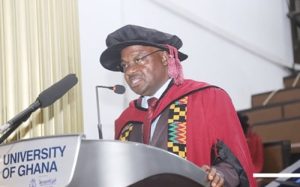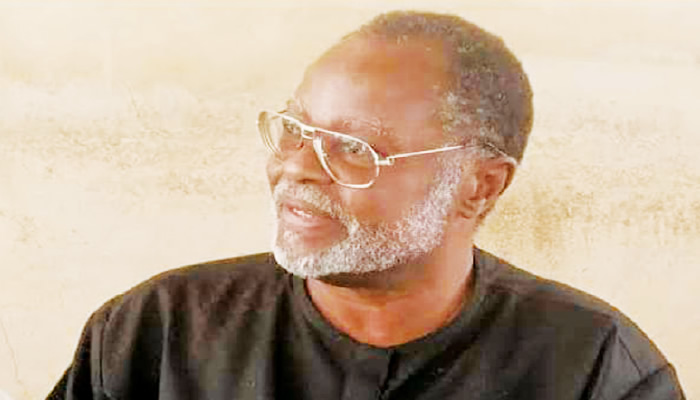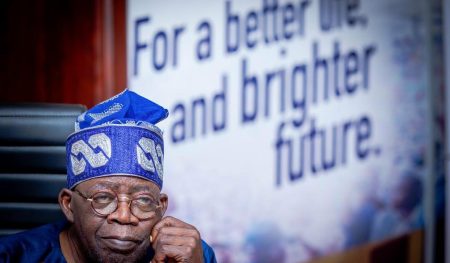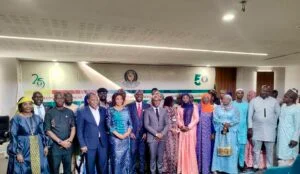The unfolding political drama within Nigeria’s ruling All Progressives Congress (APC) has sparked controversy and raised questions about the party’s internal dynamics. At the heart of the issue is the conspicuous absence of Vice President Kashim Shettima from discussions concerning President Bola Tinubu’s potential re-election bid in 2027. This omission, according to political analyst Udenta Udenta, amounts to a public humiliation of the sitting Vice President, a situation unprecedented in Nigeria’s recent political history. Udenta argues that the APC governors and other influential figures within the party have deliberately sidelined Shettima by endorsing Tinubu for a second term without acknowledging the Vice President’s role. This deliberate silence, coupled with President Tinubu’s statement that he has not yet chosen a running mate for 2027, creates an atmosphere of uncertainty and disrespect for the office of the Vice President.
Historically, Nigerian presidents have maintained a respectful and collaborative relationship with their deputies, even when political differences arose. Udenta points to previous administrations, highlighting the mutual respect between Obasanjo and Atiku, Yar’Adua and Jonathan, and even Buhari and Osinbajo, despite occasional disagreements. In contrast, the current situation presents a stark departure from this established norm. Shettima’s position remains ambiguous, with his future dependent on President Tinubu’s decision after the party’s convention. This uncertainty is not only a personal affront to the Vice President but also undermines the established protocol of presenting a joint ticket for re-election, a standard practice in Nigerian politics.
The APC’s justification for postponing the decision on the running mate until after the convention further fuels the controversy. Udenta argues that such a crucial decision should not be treated lightly, especially when a sitting Vice President is involved. The convention, typically focused on party organization and policy matters, should not be the platform for determining the fate of the Vice President. By deferring the decision, the APC creates an unnecessary power vacuum and fuels speculation about internal divisions within the party. This approach deviates from established political conventions and raises questions about the party’s respect for the Vice President’s office.
The situation surrounding Shettima’s future also highlights the potential power struggle within the APC. President Tinubu’s assertion that he will decide on his running mate after the convention suggests an attempt to consolidate his control over the party machinery. By delaying the decision, he maintains leverage and keeps potential contenders in suspense. This strategy, while politically astute, contributes to the uncertainty surrounding Shettima’s position and further isolates him within the party. The lack of clarity from the APC leadership only exacerbates the situation, leaving room for speculation and potentially damaging the party’s image.
Adding to the intrigue is the resignation of APC National Chairman Abdullahi Ganduje. While Udenta expresses no surprise at Ganduje’s departure, the timing of the resignation raises questions about its connection to the ongoing vice-presidential dilemma. Speculation links Ganduje’s resignation to the potential defection of former Kano State governor Rabiu Kwankwaso to the APC. Kwankwaso’s entry into the party could significantly alter the political landscape and potentially influence the choice of a running mate for Tinubu. Ganduje’s resignation might be a strategic move to preempt any potential challenges to his influence within the party, or it could be a reaction to the shifting power dynamics.
Ultimately, the controversy surrounding Shettima’s future underscores the complex political maneuvering within the APC. The party’s handling of the situation has created a perception of disrespect towards the Vice President and raised concerns about internal power struggles. The outcome of the party’s convention and President Tinubu’s subsequent decision will not only determine Shettima’s fate but also shape the future trajectory of the APC and its prospects for the 2027 elections. The uncertainty surrounding the Vice Presidency, coupled with the National Chairman’s resignation, signals a period of potential instability and transition within the ruling party.














